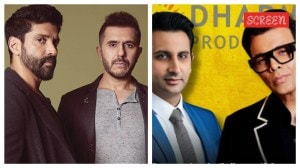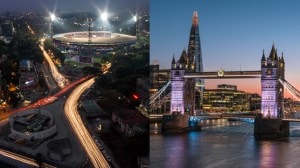Diffident power
Europe engages India in new ways. But India8217;s defensiveness on global issues stands in the way.

British Prime Minister Gordon Brown, who has just swung through New Delhi, and the French president, Nicholas Sarkozy, who follows him later this week, adorn a long list of European leaders tripping over each other in India this diplomatic season. As the old European powers struggle to come to terms with the new challenges of globalisation, they have had no option but to intensify their engagement with Asia8217;s rising powers 8212; China and India 8212; and offer them a larger say in the management of a more complex world. After nearly four centuries, the balance of power between Europe and India has begun to alter in India8217;s favour.
At the very moment the nation can stand tall and look its old colonial rulers in the eye, a vision deficit has afflicted India8217;s political leadership. What else would explain New Delhi8217;s happiness at Premier Brown8217;s endorsement of India8217;s case for the permanent membership of the United Nations Security Council. After all, it is a cheque that can never be encashed. There is little reason, too, for celebration if President Sarkozy offers to sell a few nuclear reactors to India. For the real problem is at home 8212; the inability of Congress leadership to confront its moribund Communist parties on a matter of vital national interest. That India wants something from Europe is obvious. It is also apparent that India, at least the present government, has very little to offer to Europe and the world.
Take for example, the question of international trade, where Europe has a powerful say. Is India, one of the major beneficiaries of the current wave of globalisation, willing to take the leadership in reviving the stalled Doha Round? Can India stop gloating over the lack of progress on a new international deal for global warming that goes beyond the Kyoto Protocol? Did India 8212; one of the world8217;s largest contributors to international peacekeeping 8212; have something to add to Brown8217;s proposals on building up international capacity for a rapid response to future humanitarian crises around the world? India8217;s unbelievable defensiveness on all the new international issues would leave the European leaders with three inescapable conclusions. That the current government in New Delhi is not ready for global prime time and too stuck with the notion of autonomy to take up the responsibilities of a rising power. Finally they will also judge that despite profound ideological differences, an illiberal China is a more credible interlocutor than a democratic India.
- 01
- 02
- 03
- 04
- 05






























